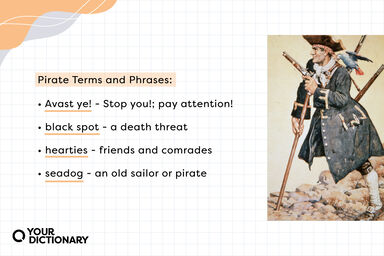Heave Definition
- To rise or seem to rise over the horizon into view, as a ship.
- an exclamation used when heaving or lifting something heavy, as by sailors when heaving in the anchor
- to stop forward movement, esp. by bringing the vessel's head into the wind and keeping it there
- to stop
Origin of Heave
-
From Middle English heven, hebben, from Old English hebban, from Proto-Germanic *habjaną (“to take up, lift”) (compare West Frisian heffe, Dutch heffen, German heben, Danish hæve), from Proto-Indo-European *kh₂pyé-, from the root *keh₂p- (compare Old Irish cáin 'law, tribute', cacht 'prisoner', Latin capiō 'to take', Latvian kàmpt 'to seize', Albanian kap (“I grasp, seize”), Ancient Greek κάπτω (káptō, “to gulp down”), κώπη (kṓpē, “handle”)).
From Wiktionary
-
Middle English heven from Old English hebban kap- in Indo-European roots
From American Heritage Dictionary of the English Language, 5th Edition
Heave Is Also Mentioned In
Find Similar Words
Find similar words to heave using the buttons below.





